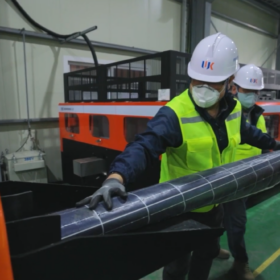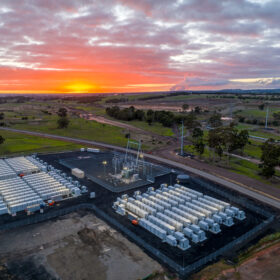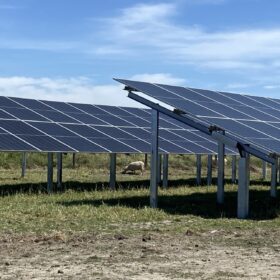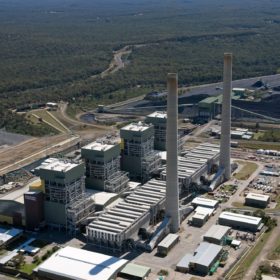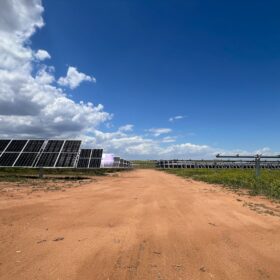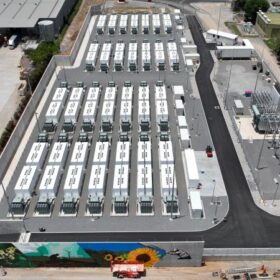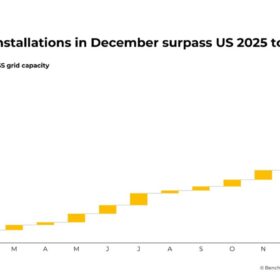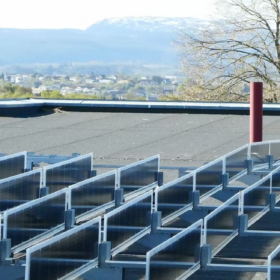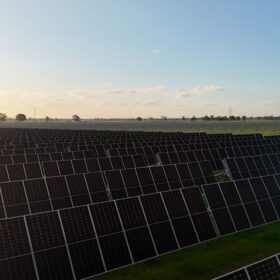Livium ships end-of-life panels to South Korea for critical mineral recovery
Recycling solutions company Livium has for the first time shipped 600 end-of-life solar panels to South Korea, where a strategic partner, Won Kwang S&T will validate their proprietary technology for large-scale solar panel recycling.
Sungrow releases new inverters, storage system for utility and C&I solar
Chinese manufacturer Sungrow has introduced a new utility string inverter, a three-phase hybrid inverter for commercial and industrial applications, and a liquid-cooled energy storage system.
Engie buys out Eku to achieve 100% ownership of Hazelwood BESS
French energy company Engie has acquired London-headquartered Eku Energy’s minority stake in Engie’s 150 MW / 150 MWh Hazelwood battery energy storage system in Victoria.
Australian-made perovskite cell manufacturing gets boost with new MOU
Next-generation solar innovator Halocell Energy is set to benefit from the development of a sovereign supply chain for high-purity precursors to perovskite after signing a memorandum of understanding with Queensland advanced materials company Lava Blue.
CleanPeak buys 25 MW solar and 100 MWh battery storage projects in NSW
CleanPeak Energy has acquired five new solar farm and battery energy storage system development sites across New South Wales from Fortitude Renewables, which are expected to produce 90 GWh of energy per annum.
Eraring extension sparks renewables investment concerns
Origin Energy’s decision to extend the operation of Australia’s largest coal-fired power station until 2029 has come under fire with the Institute for Energy Economics and Financial Analysis warning it creates uncertainty that could threaten new renewables investment.
South Australian solar and battery project secures grid approval
South Australia-based renewables developer Green Gold Energy says it has received connection approval for a 108 MW solar farm and 440 MWh battery energy storage system being developed in the state’s northeast.
Akaysha Energy powers up 410 MWh Queensland battery five months early
Akaysha Energy says its Brendale battery energy storage system in Queensland has commenced commercial operations close to five months ahead of schedule.
Global BESS demand jumps 51% in 2025 as installations top 300 GWh
Iola Hughes, Head of Research at Benchmark Mineral Intelligence, says 2026 is set to be another strong year for battery energy storage systems, with forecast additions exceeding 450 GWh and no material supply constraints in sight. Meanwhile, the initial impact of rising lithium prices is already visible at the cell level, but the full effect has yet to ripple through to system pricing.
Smart Commercial to roll out prefabricated vertical rooftop PV system
Smart Commercial Energy has unveiled a new prefabricated vertical rooftop solar system for the Australian market as part of a collaboration with Norwegian clean energy company Over Easy Solar.
